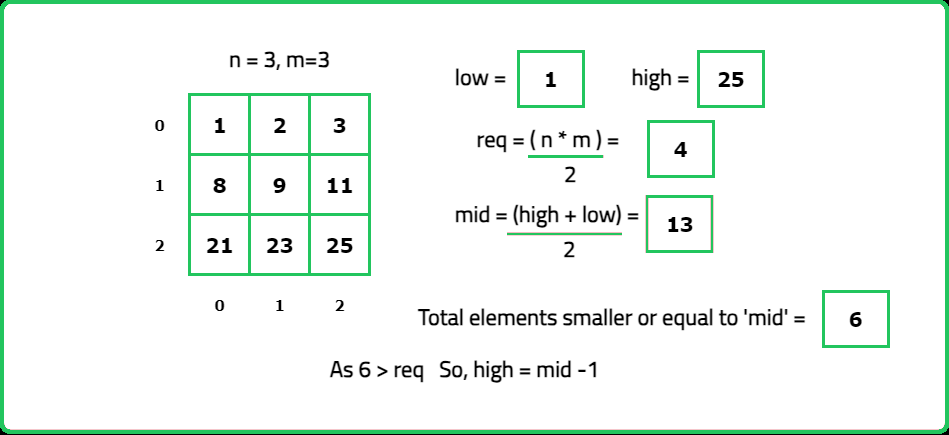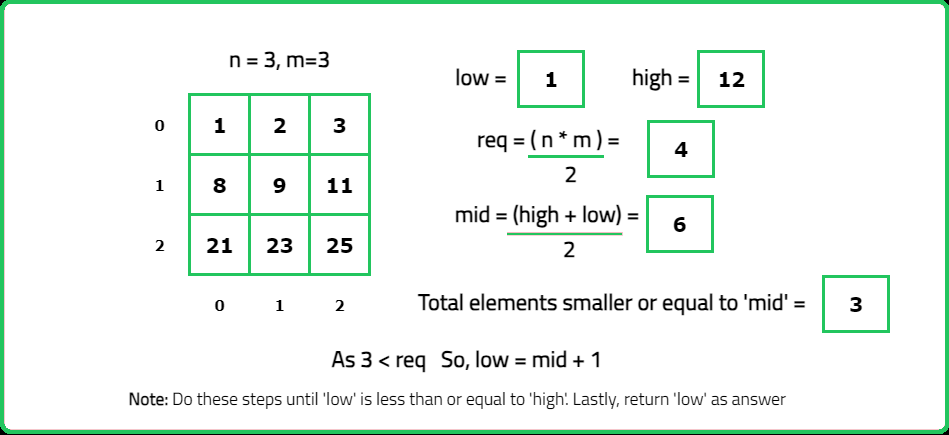Matrix Median
Binary Search
2D Arrays
Hard
- In the field of image processing and computer graphics, a similar problem is frequently encountered
- Pixels of an image are typically represented as a 2D matrix
- Operations like median filtering, which involves finding the median of a submatrix or neighborhood of pixels, are applied to remove 'salt and pepper' noise from images while keeping the edges intact
- Hence, understanding how to efficiently compute the median of a 2D matrix is crucial in these areas
Given a 2D array matrix that is row-wise sorted. The task is to find the median of the given matrix.
Examples:
Input: matrix=[ [1, 4, 9], [2, 5, 6], [3, 8, 7] ]
Output: 5
Explanation: If we find the linear sorted array, the array becomes 1 2 3 4 5 6 7 8 9. So, median = 5
Input: matrix=[ [1, 3, 8], [2, 3, 4], [1, 2, 5] ]
Output: 3
Explanation:If we find the linear sorted array, the array becomes 1 1 2 2 3 3 4 5 7 8. So, median = 3
Input: matrix=[ [1, 4, 15], [2, 5, 6], [3, 8, 11] ]
Constraints
- N==matrix.size
- M==matrix[0].size
- 1 <= N, M <= 105
- 1 <= N*M <= 106
- 1 <= matrix[i] <= 109
- N*M is odd
Hints
- Adjust the binary search range based on whether the count is greater or less than the desired position of the median.
- "Since each row is sorted, count the number of elements ≤mid efficiently for each row using binary search (O(logm) per row). Sum the counts for all rows to get the total number of elements ≤ mid."
Company Tags
Optum
Wayfair
Riot Games
Mastercard
Electronic Arts
Ernst & Young
Docker
McKinsey & Company
Zynga
Micron Technology
IBM
Zoho
Roche
Western Digital
Etsy
eBay
NVIDIA
Philips Healthcare
Twilio
PayPal
Boston Consulting Group
Dropbox
Square
Rakuten
Bloomberg
Google
Microsoft
Amazon
Meta
Apple
Netflix
Adobe

